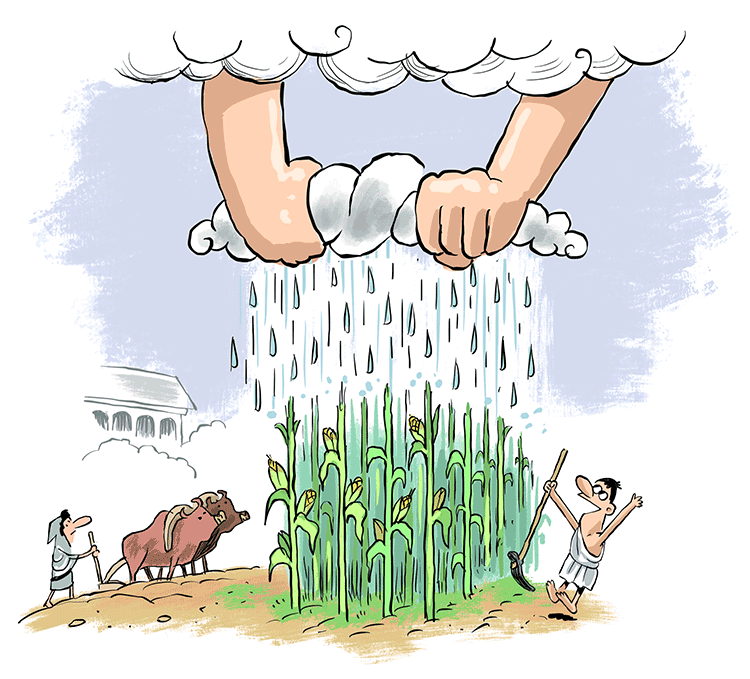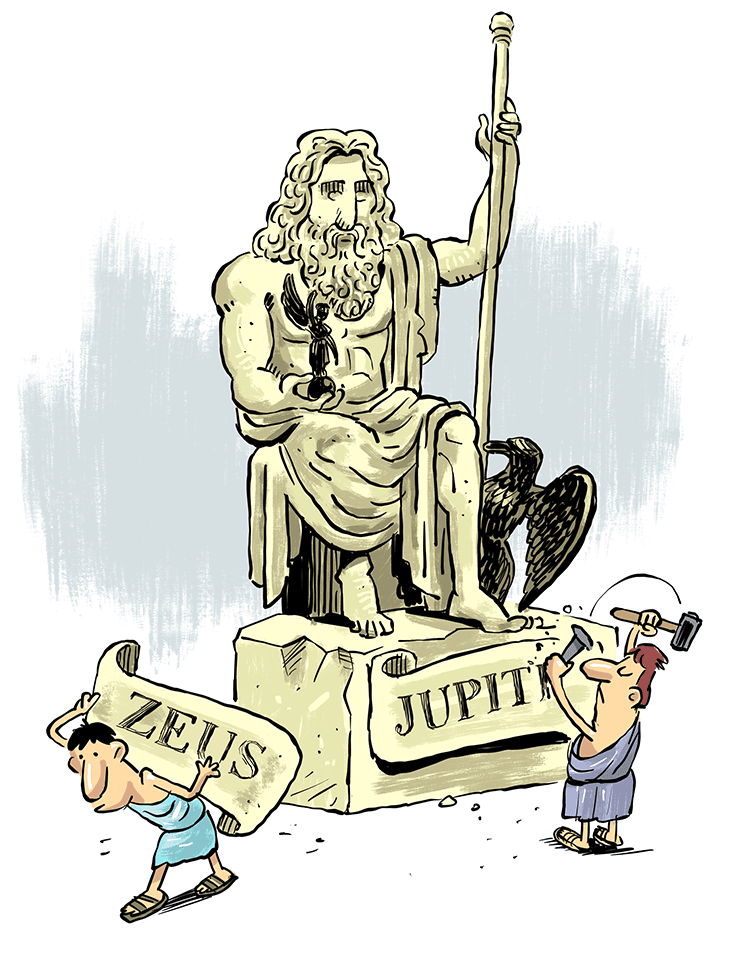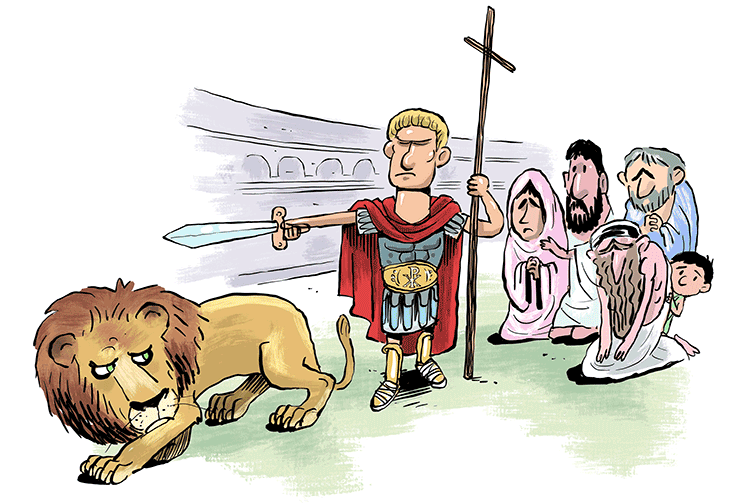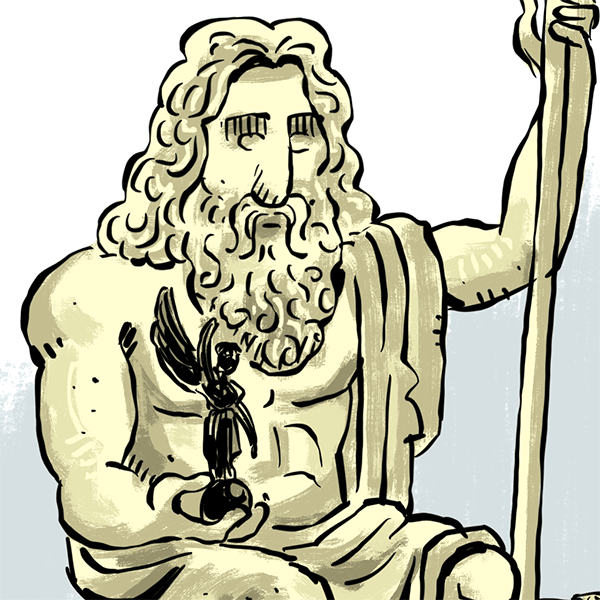Religion has always played an important role in human history. People are naturally-inclined to believe in something larger than themselves. But what and who they believe in changes. All the time.
Considering how long the Roman empire lasted (from 49 BC to either 476 AD or 1453 AD, depending on how you look at it) it should come as no surprise that religion underwent numerous transformations, all of which impacted the empire itself as well as the rest of the world.
The biggest religious development to come out of Roman history was the rise of Christianity, which is today the largest religion in the world in terms of number of followers. But there’s a lot more to the story of religion in Rome.

Early Religion in Rome
Probably because of the lack of written records, there isn’t a lot of information out there about the “original Roman gods.” It is known that early Romans believed the world was ruled by immortal beings from the heavens, but specific names did not appear until later, when the Romans came into contact with, and tried to conquer, the Greeks.
Cults were common across Roman lands. They were often based on legendary stories and practiced all sorts of rites and rituals. Some of these cults were uniquely Roman but many others borrowed from other traditions.
In Greece, there was a rich mythology full of countless gods and even more stories. The gods helped to explain creation, wars, daily life, and much more. Few aspects of Greek life were untouched by religion.

Making Greek Gods Roman
As the Romans moved east with their military conquests and expanded their political control and formed an empire, they had to make an effort to accommodate for Greek influence.
Thanks to the conquests of Alexander the Great (356 – 323 BC), most of what is now Turkey, Syria, Israel, and Egypt spoke Greek as an official language and had adopted quite a few Greek religious and cultural concepts.
Therefore, to win the support of these people and establish Rome as the center of a vast empire, a conscious effort was made to combine Greek and Roman religion. All of the most important Greek gods, for example, were given Roman names. Zeus became Jupiter. Cronus became Saturn. Ares became Mars. Hermes became Mercury. The list goes on.
The Romans went even further and connected many of their own stories to Greek mythology.
For example, the Romans linked the founding of Rome to Aeneas, the Greek hero from the Trojan War. Running away after losing the war, he landed in Italy. His descendents, Romulus and Remus, were said to be the two brothers who founded Rome.
Roman myths took on their own life and character, but the reality is that they were deeply rooted in Greek traditions. Given the importance of Greek culture in the empire, this is yet another example of how political power and religion so often go hand-in-hand.
Deifying Emperors
Another way in which religion factored into Roman history was through the deification of emperors. This is just a fancy way of saying they were “made” into gods.
To be able to rule over such a large territory, the emperor had to have some sort of claim to power. Religion played a key role here. By linking his lineage or ancestry to some past Roman leader who had been made a god, his claim to the emperorship could be seen as more legitimate.
A great example of this is Julius Caesar and the first emperors of Rome.
After he was assassinated (which made the people of Rome mad, for he was their hero), his adopted nephew, Octavian, fought for control over Rome. He eventually won, but one of the first things he did was make Caesar into a god.
Now, his claim to the right to rule extended beyond just his family ties to Caesar. Instead, it was linked to a god and were therefore much more meaningful,
The Rise of Christianity
Perhaps the most significant thing to come out of Roman religious history (at least in terms of its impact on today) is the rise of Christianity.
Of course, this was not something Rome or the Romans did. Instead, it was its own phenomenon that the empire responded to in an effort to keep itself alive.
The big difference between Christianity and traditional Roman religions is that it’s monotheistic. This means its followers believe in one god instead of many.
Christians in particular also believe in the existence and benevolence of Jesus Christ.
Its roots trace back to Judaism, which had been prevalent for thousands of years and was present in the lands of what is now Israel. At the time, it was controlled by Rome.
For most of Roman history, Christianity was seen as a threat to the Roman state. It was condemned as excessively individualistic and even atheistic. As a result, Roman emperor after Roman emperor actively tried to suppress it through what is now known as persecution.
As part of this process, violence against Christians was often tolerated and sometimes even encouraged. They were often blamed for anything bad that happened in the empire and ultimately seen as enemies of the state.
The fact that Christianity spoke directly to the downtrodden, oppressed, and powerless members of society (of which there were many in the Roman empire) made it a threat to the Roman state.

Christianity Becomes Rome’s Official Religion
Things changed in 313 AD when Constantine, along with his co-emperor at the time, Licinius, issued the Edict of Milan, which ended persecutions against Christians and provided them special protections. He also presided over the Council of Nicea, which helped clarify official Christian doctrines and organized the religion more than ever.
Constantine also officially converted to Christianity. He was the first emperor to do so. All subsequent emperors, with the exception of one, were also Christians.
However, it is believed that Constantine, in his private life, continued to practice traditional, pagan religions. It seems to be a classic case of “if you can’t beat ‘em, join ‘em.”
No matter his motives, by bringing Christianity into the Roman state, Constantine changed history forever. The religion would continue to grow in size and influence and has had an immense impact on the world even up until this very day.
Religion and Politics: Together Forever
Since it covered such a large geographic area, the Roman empire never had just “one” religion. Instead, it had official state religions and then a bunch of other ones that were either outlawed or not tolerated. Even after Christianity spread, it was not universal. Pagan cults persisted well after the rise of Christianity, and many Christian traditions, such as Christmas and Easter, have connections to traditional pagan rituals.
However, the Roman empire brought religion and politics closer together than ever before. By fusing the Roman state with Christianity, the stage was set for the rise of the Catholic church. Ruling from Rome and controlled by the Pope, the Catholic Church has wielded immense power over the western world and continues to influence people today.
Would that have happened if Constantine hadn’t embraced Christianity? Probably. But his decision radically changed Rome and, along the way, the entire course of human history.
Written by Matthew Jones
Illustrated by Jean Galvao
